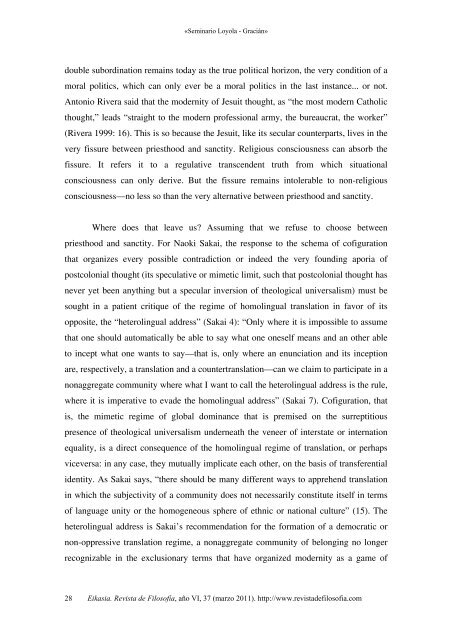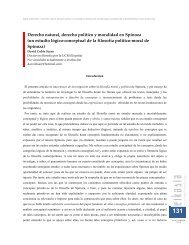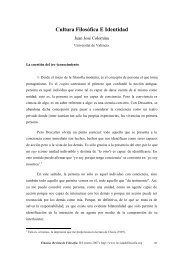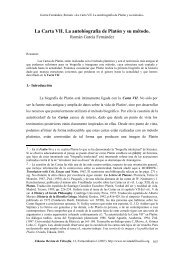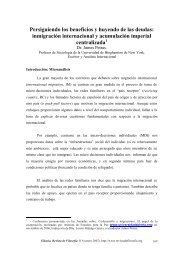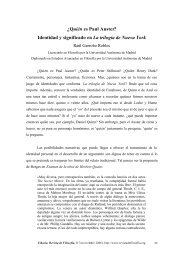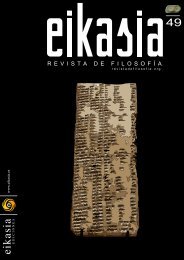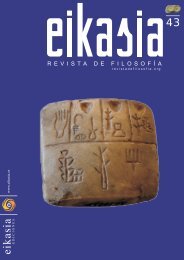Descargar número completo (3,83 MB) - Eikasia
Descargar número completo (3,83 MB) - Eikasia
Descargar número completo (3,83 MB) - Eikasia
You also want an ePaper? Increase the reach of your titles
YUMPU automatically turns print PDFs into web optimized ePapers that Google loves.
«Seminario Loyola - Gracián»<br />
double subordination remains today as the true political horizon, the very condition of a<br />
moral politics, which can only ever be a moral politics in the last instance... or not.<br />
Antonio Rivera said that the modernity of Jesuit thought, as “the most modern Catholic<br />
thought,” leads “straight to the modern professional army, the bureaucrat, the worker”<br />
(Rivera 1999: 16). This is so because the Jesuit, like its secular counterparts, lives in the<br />
very fissure between priesthood and sanctity. Religious consciousness can absorb the<br />
fissure. It refers it to a regulative transcendent truth from which situational<br />
consciousness can only derive. But the fissure remains intolerable to non-religious<br />
consciousness—no less so than the very alternative between priesthood and sanctity.<br />
Where does that leave us? Assuming that we refuse to choose between<br />
priesthood and sanctity. For Naoki Sakai, the response to the schema of cofiguration<br />
that organizes every possible contradiction or indeed the very founding aporia of<br />
postcolonial thought (its speculative or mimetic limit, such that postcolonial thought has<br />
never yet been anything but a specular inversion of theological universalism) must be<br />
sought in a patient critique of the regime of homolingual translation in favor of its<br />
opposite, the “heterolingual address” (Sakai 4): “Only where it is impossible to assume<br />
that one should automatically be able to say what one oneself means and an other able<br />
to incept what one wants to say—that is, only where an enunciation and its inception<br />
are, respectively, a translation and a countertranslation—can we claim to participate in a<br />
nonaggregate community where what I want to call the heterolingual address is the rule,<br />
where it is imperative to evade the homolingual address” (Sakai 7). Cofiguration, that<br />
is, the mimetic regime of global dominance that is premised on the surreptitious<br />
presence of theological universalism underneath the veneer of interstate or internation<br />
equality, is a direct consequence of the homolingual regime of translation, or perhaps<br />
viceversa: in any case, they mutually implicate each other, on the basis of transferential<br />
identity. As Sakai says, “there should be many different ways to apprehend translation<br />
in which the subjectivity of a community does not necessarily constitute itself in terms<br />
of language unity or the homogeneous sphere of ethnic or national culture” (15). The<br />
heterolingual address is Sakai’s recommendation for the formation of a democratic or<br />
non-oppressive translation regime, a nonaggregate community of belonging no longer<br />
recognizable in the exclusionary terms that have organized modernity as a game of<br />
28 <strong>Eikasia</strong>. Revista de Filosofía, año VI, 37 (marzo 2011). http://www.revistadefilosofia.com


